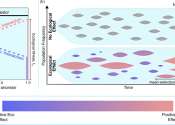Front-line drug for ulcerative colitis found to have additional mechanism of action that until now remained elusive
Monoclonal antibodies have become indispensable in medicine to combat cancers, infectious diseases and autoimmune disorders. But the mechanism of action of a major monoclonal antibody developed for ulcerative colitis has ...









